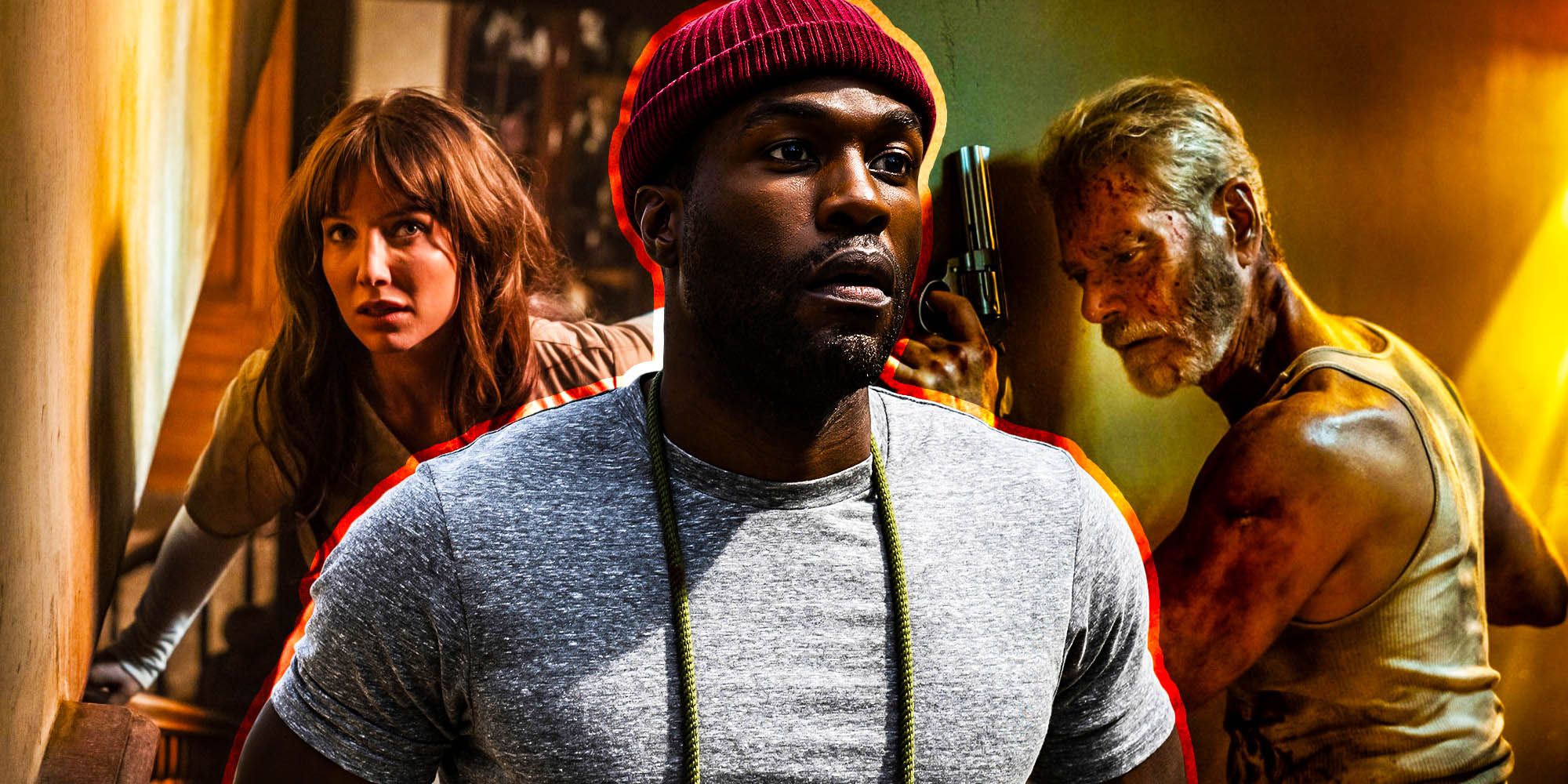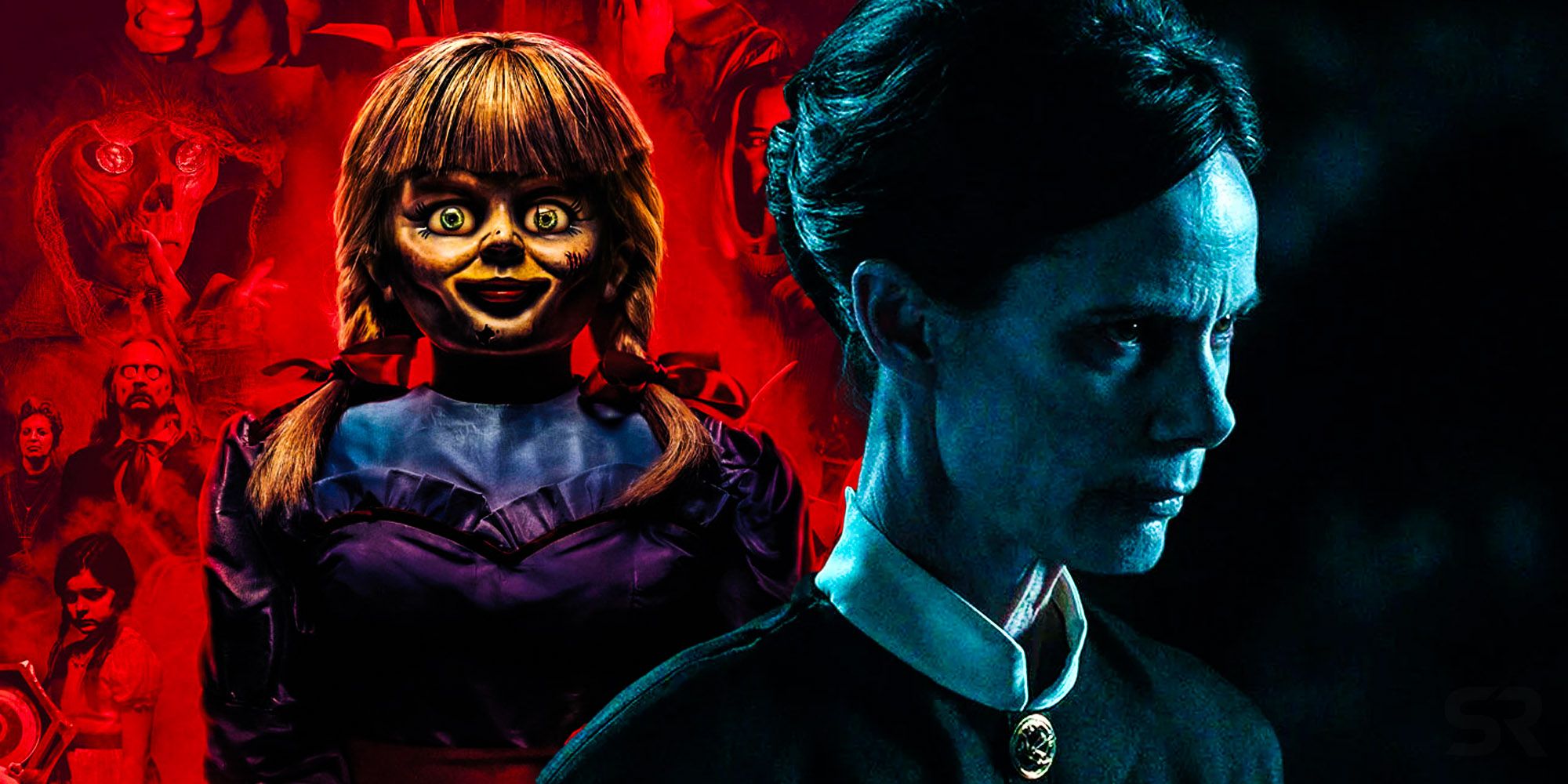The 2021 box office may be in recovery after taking a massive hit in 2020 thanks to the coronavirus pandemic, but horror movies seem to be enjoying much better post-pandemic success compared to other genres. While the biggest hits of 2021 like F9, Black Widow, and Shang-Chi and the Legend of the Ten Rings are seeing muted box office hauls compared to what would have been expected of them in 2019, the horror genre seems to be posting box office receipts that aren't down nearly as much by comparison.
The horror genre has always been a reliable box office mainstay. While the movies themselves aren't as accessible and don't always see the kind of mainstream breakthrough as your typical blockbuster, like a Marvel movie, the novel thrills, inventive filmmaking, and typically low-budget cost make them a lucrative corner of the theatrical market. There may not be many horror movies in the $1 billion box office club, but when the movies are made for a fraction of the cost, it can be hard for them to not turn a profit.
2021 has seen a lot of box office disappointments like The Suicide Squad and Snake Eyes, but even some of the biggest earners like F9, Black Widow, and Shang Chi and the Legend of the Ten Rings box office hauls would be seen as disappointing in the pre-pandemic market. Meanwhile, A Quiet Place Part II, Candyman, The Conjuring: The Devil Made Me Do It, and other horror movies are seeing numbers that don't seem nearly as diminished, and the reasons are likely two-fold. First, the horror genre is one of the most clear-cut examples of a movie benefitting from the theatrical experience, where audiences can experience jump scares and cringe gore together. At the same time, where mainstream blockbusters benefit heavily from the general audience, horror movies have a much more niche and dedicated audience, which isn't likely to shrink nearly as much as people re-evaluate their time spent in public spaces like theaters.
The strong performance also means horror could be one of the safest box office bets in the post-pandemic market. After accounting for marketing costs and revenue splits with theater owners, the rule of thumb is most blockbusters need to make at least double their budget in order to break even. The true cost of making a blockbuster is rarely known, but F9 and Black Widow both reportedly cost at least $200 million, and while F9's $714 million global box office easily clears that benchmark, only $172 million of that comes from the more lucrative domestic box office, while the rest comes from other countries, where the revenue sharing is usually less friendly for the studio, particularly in China, where over $200 million of F9's box office comes from. Black Widow, meanwhile, could struggle to reach that ballpark $400 million break-even point. Shang-Chi could be a bright spot, as its early performance is promising, and it reportedly has a budget closer to $150 million. 2021's horror movies have fared much better.
A Quiet Place Part II, Candyman, and The Conjuring: The Devil Made Me Do It reportedly cost $61 million, $25 million, and $39 million, respectively, and they've all cleanly passed that 2x budget benchmark already. Other 2021 horror movies like The Forever Purge, Escape Room: Tournament of Champions, and Don't Breathe 2 are all the same story. As studios get more concerned about box office, expect to see fewer $200 million movies green-lit (unless they go to streaming, where there's currently much more financial potential), as the big screen experience shifts towards lower budget thrills, especially from the horror genre.


